Are you or someone you know a victim of wrongful imprisonment? Navigating the complexities of a claim can feel daunting, but understanding your rights is crucial. In this article, we'll explore the key steps to take and the necessary information needed to build a solid case. Keep reading to discover how you can take action and seek justice for wrongful incarceration!
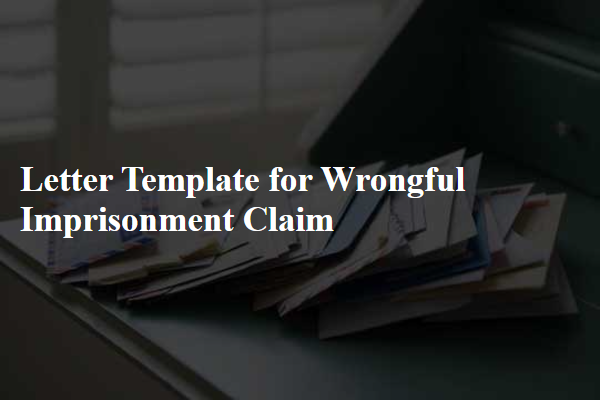
Personal Information and Contact Details
An individual pursuing a wrongful imprisonment claim must provide essential personal information, including full name, date of birth, and social security number, which are crucial for identification purposes in legal documents. Contact details such as a home address, phone number, and email address must be accurate to ensure effective communication with legal representatives and courts. In addition, the individual should reference relevant case details, such as the arrest date, the location of the incident, and the name of the law enforcement agency involved, to establish a clear context for their claim. Specific allegations, including claims of unlawful detention or violations of rights, should be meticulously documented to strengthen the case.
Incident Description and Timeline
The wrongful imprisonment claim stems from the events surrounding the wrongful arrest of an individual, John Smith, on March 15, 2022, in downtown Springfield. At approximately 3:00 PM, police officers responded to a reported disturbance near Elm Street Park, leading to the apprehension of John based on a misidentification by a witness, who later provided conflicting statements. Following the arrest, John was detained for three months awaiting trial, during which time new evidence surfaced, including video footage from a nearby surveillance camera that clearly showed John was not present at the scene during the alleged incident. The trial, initially set for June 20, 2022, was delayed multiple times, and finally, on September 10, 2022, the judge dismissed all charges due to the lack of credible evidence against John. His wrongful imprisonment not only led to significant emotional distress and financial difficulties but also tarnished his reputation within the Springfield community.
Legal Grounds and Evidence
Wrongful imprisonment claims arise from false imprisonment, a legal term for unlawful detention of an individual. Key legal grounds include violation of constitutional rights (specifically the 14th Amendment in the United States, which guarantees due process). Evidence often includes documentation such as police reports, photographs of physical injuries, witness affidavits, and video footage. Critical to establishing false imprisonment, clear records of incarceration timelines (evidencing lack of probable cause) serve as substantial proof. Expert testimony may further corroborate claims, detailing procedural errors made by law enforcement officers or judicial authorities. Financial compensation in such cases can be pursued through civil litigation, with precedents set in landmark cases like Munoz v. City of New York.
Impact and Damages Experienced
Experiencing wrongful imprisonment can lead to profound psychological trauma and severe emotional distress. Individuals may endure feelings of despair, isolation, and humiliation during imprisonment, which can manifest into long-term mental health issues such as post-traumatic stress disorder (PTSD), depression, and anxiety disorders. Financially, wrongful imprisonment can devastate lives, with losses ranging from loss of employment opportunities to disruption of family relationships. For instance, gaining employment may become challenging post-release due to the stigma associated with a criminal record. Moreover, the absence of social engagement and support during incarceration can exacerbate feelings of alienation. The wrongful deprivation of liberty may also impose significant legal costs, as individuals often seek restitution through complex legal channels. In essence, the repercussions of wrongful imprisonment are extensive and multifaceted, deeply impacting the victim's quality of life long after regaining freedom.
Compensation and Legal Demands
Wrongful imprisonment can lead to severe emotional and financial distress, impacting individuals who have been unjustly incarcerated, often in places like state prisons or county jails. Victims often face lost wages, medical expenses, and reparations for trauma endured during incarceration. Legal demands may include substantial compensation for violations of civil rights, particularly under the United States Constitution, while trials may unfold in local courts, drawing attention to systemic issues within the legal framework. Case studies highlight the importance of DNA evidence and witness recantation in overturning wrongful convictions, often resulting in compensation amounts that vary significantly based on state laws, court public opinion, and legislative reform initiatives enacted after high-profile exonerations.
Letter Template For Wrongful Imprisonment Claim Samples
Letter template of wrongful imprisonment claim detailing exonerating evidence
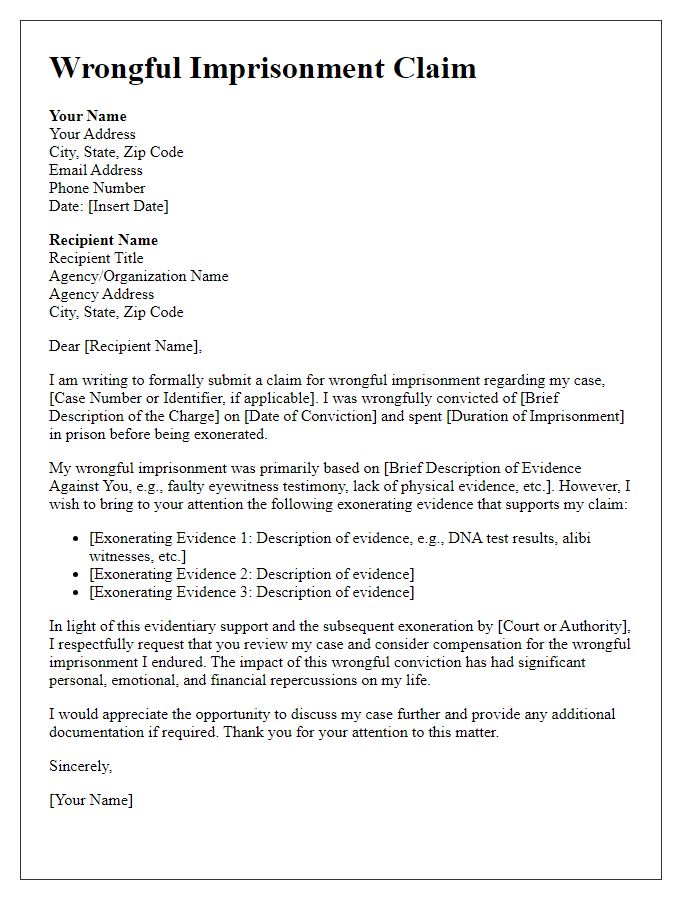
Letter template of wrongful imprisonment claim for advocacy group support
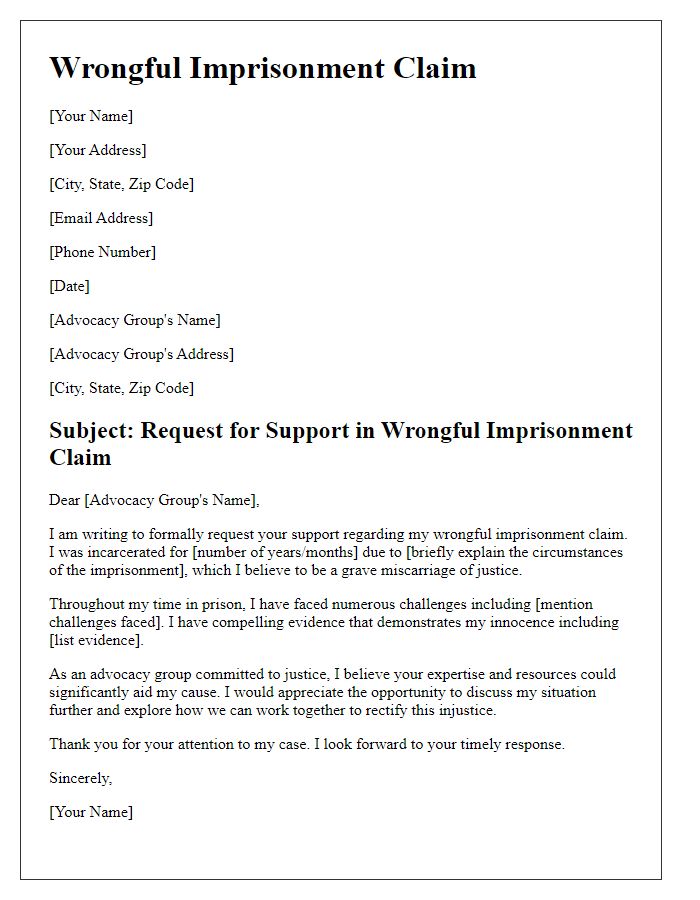

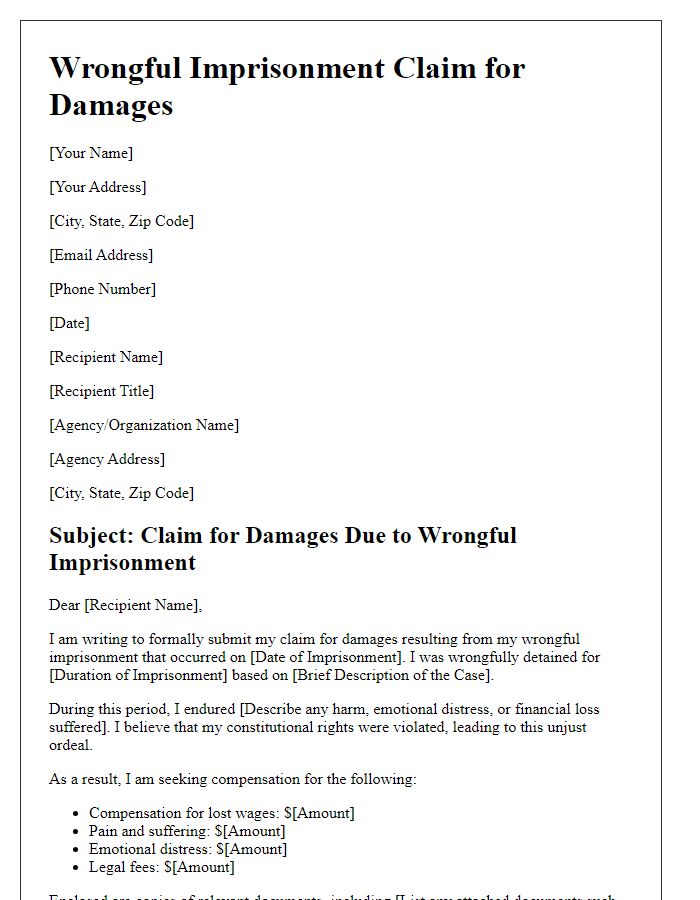
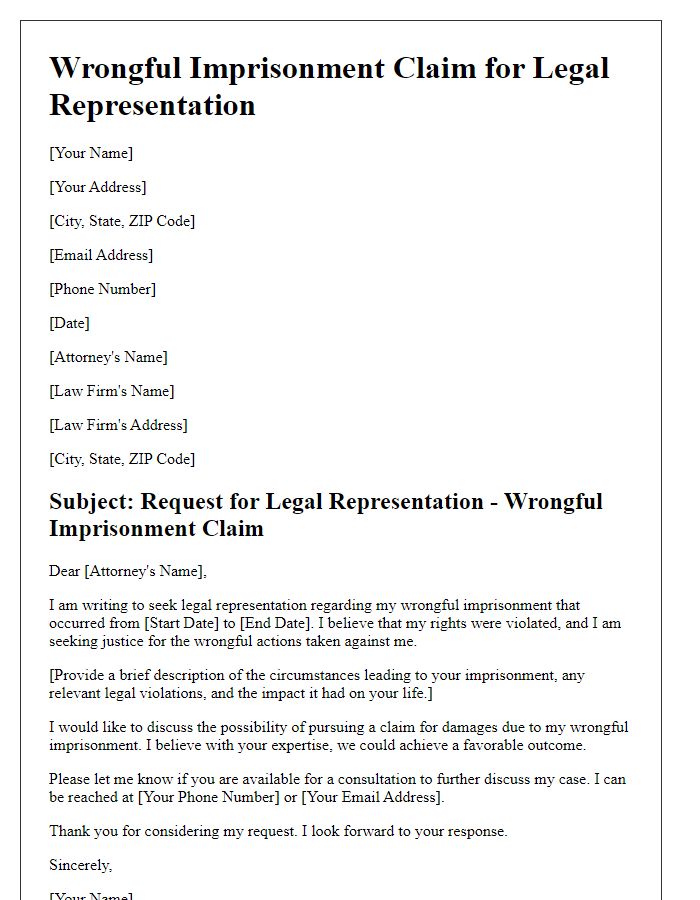
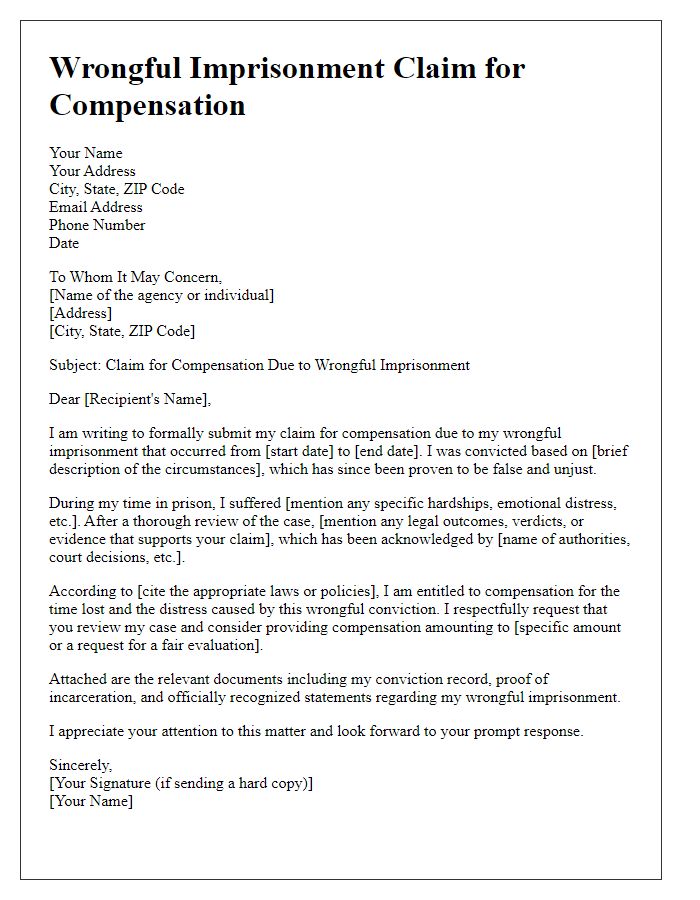
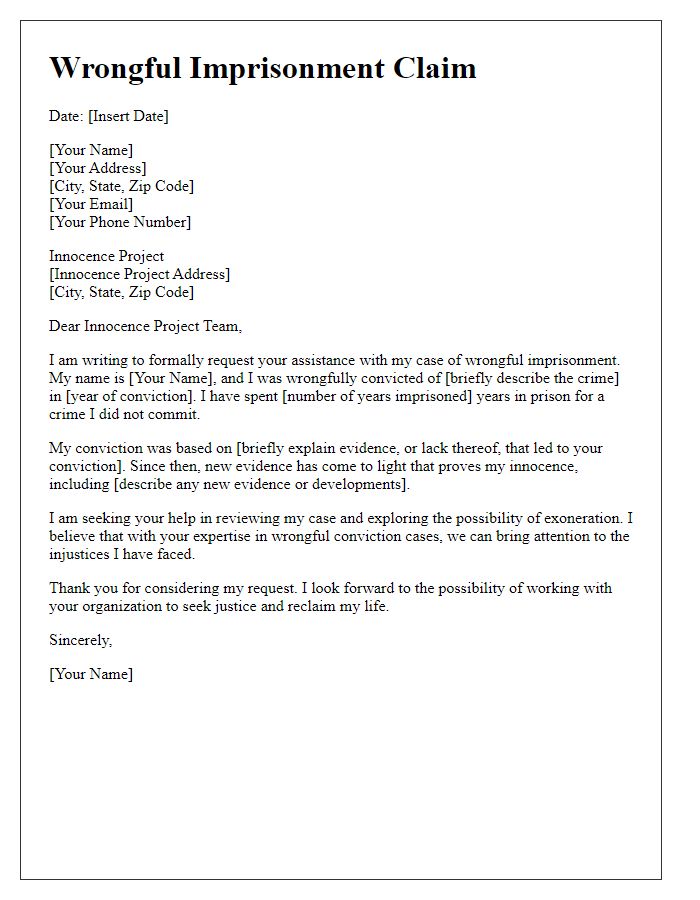
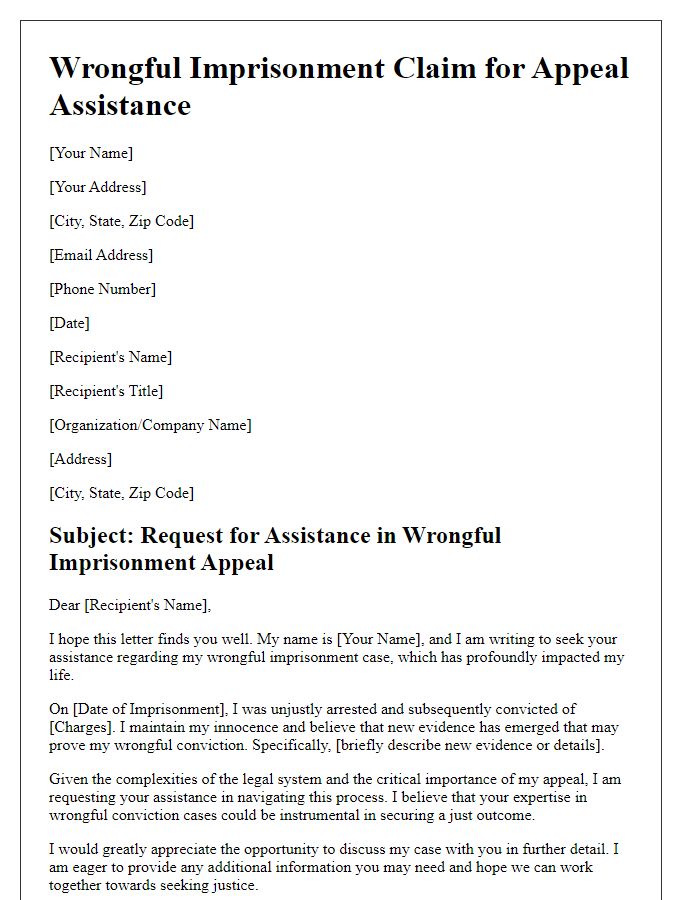
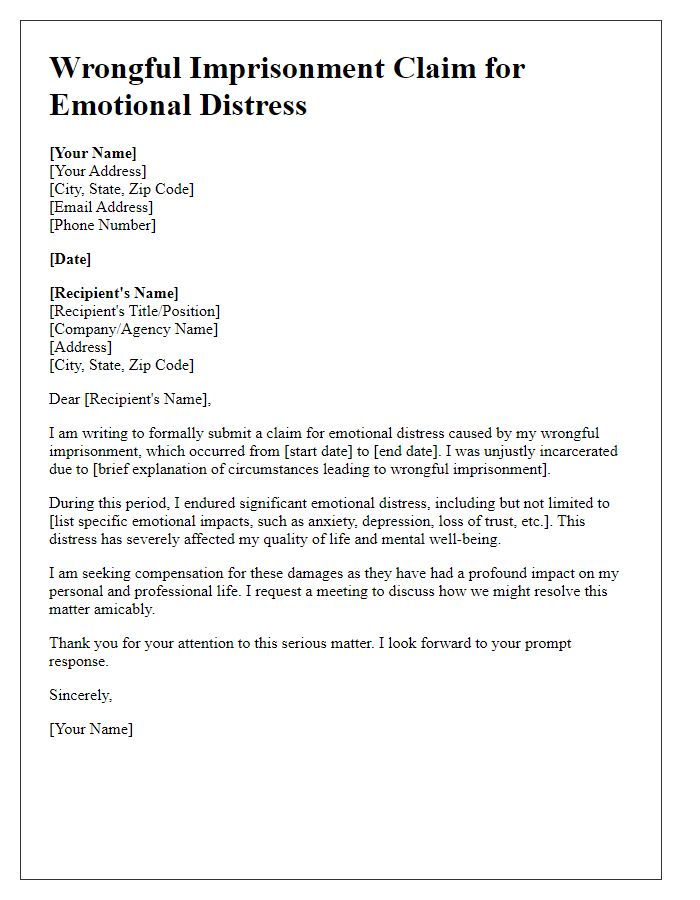
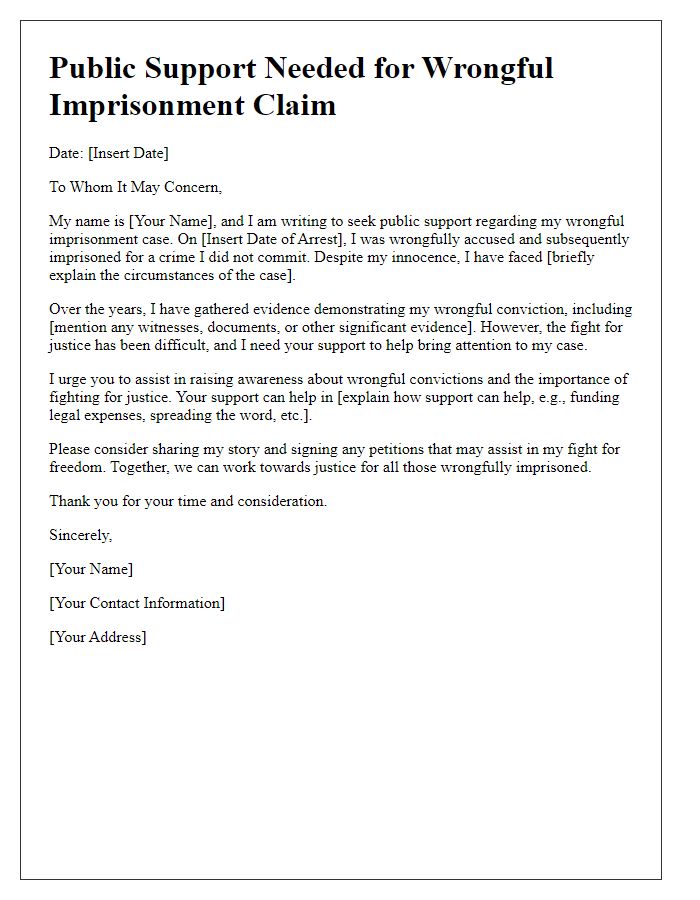
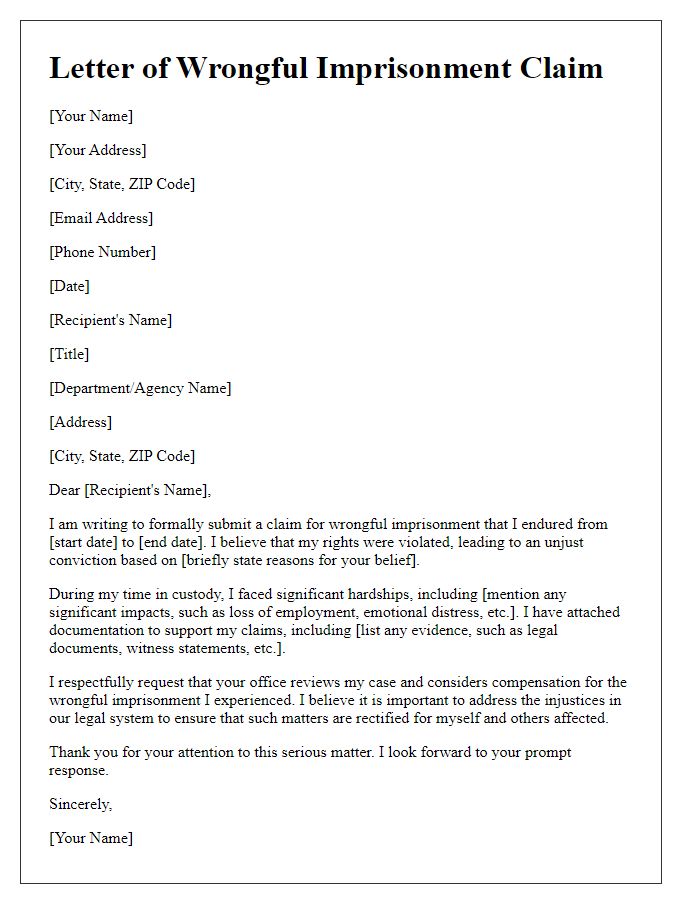


Comments